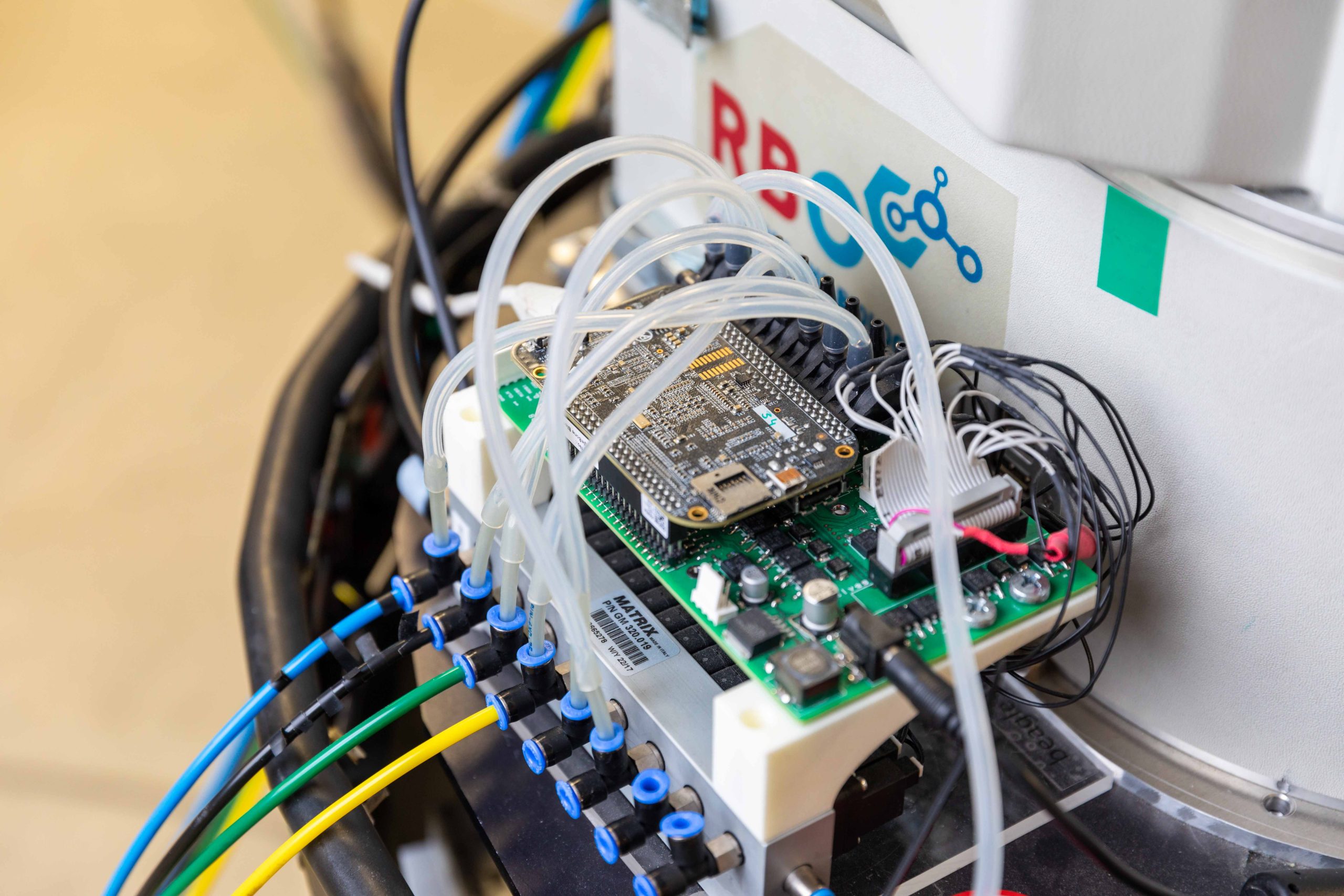Methodology of the synthetic approach
Addressing the epistemological questions raised by the use of robots and computer programs in interdisciplinary intelligence research

©SCIoI
The project’s objective is to study the epistemological opportunities and limitations of the synthetic approach to intelligence research. SCIoI’s methodology of using synthetic artifacts (such as robots or computer programs) as tools to investigate intelligent behaviors of biological agents, and vice versa, raises novel epistemological questions. What kind of knowledge about intelligent behaviors of biological agents can we obtain from synthetic artifacts that are designed to reproduce these behaviors? Under which conditions and for which purposes can we treat synthetic artifacts as functional equivalents of biological agents? What can we learn about intelligent behaviors from hybrid experimental settings in which artificial agents interact with biological counterparts? In sum, how do synthetic artefacts support the exploration, validation, and stabilization of knowledge in SCIoI research and what are the particular advantages and pitfalls of this approach?
The philosophy and sociology of science has provided conclusive evidence that the way the objects of scientific research are chosen, prepared, used and interpreted substantially influences scientific knowledge production. For this reason, Rheinberger (1997) calls the things scientists investigate and manipulate within laboratory settings “epistemic things” or “epistemic objects”. Similarly, Boon and Knuuttila (2009) conceive the models and artificial systems used in the engineering sciences as means of understanding the functioning of devices as “epistemic tools”. While the role of biological, chemical, or physical epistemic objects in the analytic disciplines has been explored extensively, the role of models and artificial systems for knowledge production in engineering research has attracted much less attention. And a cross-cutting and hybrid use of epistemic objects as in SCIoI’s research approach is largely unexplored epistemological territory (Bensaude Vincent, Loeve, and Nordmann 2017). Given the importance of the synthetic approach to SCIoI, it is vital to address this research gap.
The project aims to do so by empirically investigating the specific roles and functions of synthetic artifacts in relation to their biological counterparts in SCIoI research and by analyzing in which ways the findings derived from synthetic artifacts influence and shape the process of knowledge production.




